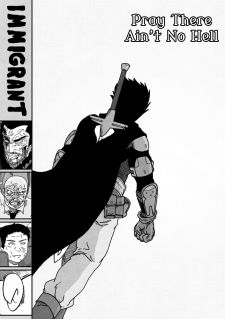Summary

Bloody Savage God
by Jordan Grant
Leave humanity at the door.
Only godless heathens survive here.
— Saint —
Chryseum Reformatory Academy aka the Asylum.
This is where the rich send their screwed-up sons and daughters, delivering them to a prison in the Catskills of New York.
The Asylum doesn’t cure. It camouflages, protecting old money from apples rotting on the family tree.
They call me a psychopath, a lunatic, unhinged.
But here, I am god.
Now, say your prayers at the door, pet, because this is my senior year, my school, my world.
Even God doesn’t step foot here.
— Willow —
I didn’t want to off myself, not really.
I wanted help.
I wanted someone—anyone—to listen.
But I’m just a flesh-and-bone cry for attention.
Now, my father’s shipped me here, where evil and old secrets seep through the cold, stone walls.
An inky-haired guy with a devilish smile offers me protection, but his price is high.
Wear his collar.
Be his pet.
Give myself to him, body and soul.
.
Read
Bloody Savage God on http://kissnovel.net
Martial Peak Reviews
In Bloody Savage God, Jordan Grant plunges readers into a dark and twisted world where the elite send their troubled offspring to the Chryseum Reformatory Academy, a place that masquerades as a sanctuary but is, in reality, a prison for the soul. The blurb sets the tone perfectly, inviting us to leave our humanity at the door and embrace the chaos that unfolds within the walls of this so-called asylum. The novel is a gripping exploration of power dynamics, mental health, and the search for identity in a world that often feels devoid of compassion.
The narrative is primarily driven by two compelling characters: Saint and Willow. Saint, who sees himself as a god within the confines of the academy, embodies the archetype of the anti-hero. He is unapologetically ruthless, wielding his influence over the other students with a blend of charisma and menace. His character is a fascinating study in the complexities of power; he thrives in an environment that celebrates cruelty and manipulation. Grant does an exceptional job of portraying Saint's internal struggles, revealing the layers of his psyche that make him both terrifying and oddly relatable. Readers may find themselves both repulsed and drawn to him, a testament to Grant's skill in character development.
On the other hand, Willow represents the fragility of the human spirit. Her arrival at the academy is marked by desperation and a longing for connection. She is not merely a victim; she is a survivor seeking solace in a world that has consistently failed her. Willow's journey is one of self-discovery, as she grapples with her own demons while navigating the treacherous waters of Saint's world. Grant effectively contrasts Willow's vulnerability with Saint's dominance, creating a dynamic that is both tense and poignant. The relationship that develops between them is fraught with complexity, as Willow must decide how much of herself she is willing to sacrifice for the semblance of safety that Saint offers.
The themes of Bloody Savage God are rich and multifaceted. At its core, the novel examines the impact of privilege and the lengths to which families will go to protect their reputations. The academy serves as a microcosm of society, where the wealthy can hide their "rotten apples" from public scrutiny. This commentary on class and the moral decay that often accompanies wealth is both timely and relevant. Grant's portrayal of the academy as a gilded cage is haunting, as it forces readers to confront the uncomfortable truth about how society treats those who are deemed "different" or "broken."
Another significant theme is the exploration of mental health. Grant does not shy away from depicting the struggles of his characters with raw honesty. Willow's initial desire for help morphs into a desperate plea for understanding, highlighting the stigma surrounding mental illness. The academy, rather than providing the support she needs, becomes a place where her pain is exacerbated. This portrayal serves as a powerful reminder of the importance of empathy and the need for open conversations about mental health, particularly among the youth.
Grant's writing style is both evocative and immersive, drawing readers into the dark atmosphere of the academy. The vivid descriptions of the setting—the cold stone walls, the oppressive silence, and the underlying sense of dread—create a palpable tension that permeates the narrative. The pacing is expertly crafted, with moments of intense action balanced by quieter, introspective scenes that allow for character development. This balance keeps readers engaged, as they are compelled to uncover the secrets that lie within the academy's walls.
Moreover, the dialogue is sharp and often laced with dark humor, which serves to lighten the heavy themes without undermining their significance. The interactions between characters are charged with emotion, revealing their vulnerabilities and desires. Grant's ability to craft authentic dialogue adds depth to the characters, making their struggles feel all the more real.
In comparison to other works in the genre, Bloody Savage God stands out for its unflinching portrayal of the darker aspects of human nature. Readers who enjoyed books like Beautiful Disaster by Jamie McGuire or After by Anna Todd will find a similar allure in Grant's narrative, but with a more pronounced emphasis on psychological depth and moral ambiguity. The novel invites readers to question their own perceptions of right and wrong, challenging them to consider the complexities of human behavior.
Ultimately, Bloody Savage God is a haunting exploration of power, identity, and the human condition. Jordan Grant has crafted a story that is as thought-provoking as it is thrilling, leaving readers to ponder the implications of privilege and the importance of compassion in a world that often feels devoid of both. The characters are unforgettable, and their journeys resonate long after the final page is turned. This novel is a must-read for anyone seeking a dark, immersive experience that delves into the intricacies of the human psyche.
























Reviews 0
Post a Reviews: